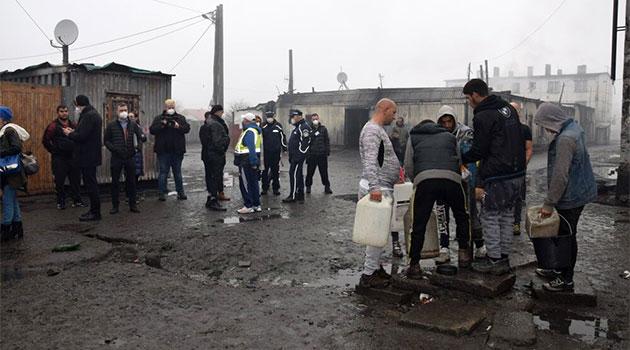MEPs who visited Romani settlements in Slovakia shocked to see such horrifying living conditions in the EU

The Government of the Republic of Slovakia has to step up its efforts to include disadvantaged groups. That is the conclusion of a delegation of MEPs from the Committee on Employment and Social Affairs that visited Romani settlements in eastern Slovakia.
The delegation visited the housing estate of Luník IX, inhabited mostly by Romani people, and Romani settlements in Drienovec, Dobšiná and Trebišov. According to the head of the delegation and chair of the committee, MEP Lucie Ďuriš Nicholsonová, Slovakia has a serious problem with upholding fundamental human rights in the Romani settlements.
The delegation head reminded the press that in some countries, the failure to uphold the principles of the rule of law endangers their ability to draw EU funds in the future. According to her, the delegation saw examples of good practices, such as at Luník IX in Košice, where local authorities at all levels are collaborating with NGOs, but they also saw bad examples.
“The delegation of the EP saw people living in third world conditions on the territory of an EU Member State,” the Slovak media quoted the delegation head as saying. As MEP Manuel Pizarro of Portugal said, the EU institutions and Slovak authorities have to come together on this issue.
“I was quite affected by what I saw during the visit to the Romani communities in Slovakia. Their living conditions are horrible – women, men and many children are living in extreme poverty and their basic needs are not being met,” Pizarro said.
“This situation is unacceptable. As an EU politician, I am ashamed of what I saw,” Pizarro told the press.
After returning to Brussels, the delegation plans to meet with other EU committees and selected commissioners on this issue. They want to create a big alliance around Roma-related subjects.
Nicholsonová said there is no plan to introduce measures that would be restrictive. “Certainly we will write a letter offering to collaborate with the Slovak authorities,” she said, adding that the measures should touch on how the drawing of EU funds for such purposes is set up.
The MEPs also plan to offer examples of projects from other countries for implementation. “If the situation changes in the settlements, then it also will change the lives of the majority society living near them,” the delegation head said.
The aim of the visit to eastern Slovakia was to assess the implementation of projects focusing on improving the inclusion of disadvantaged groups in Slovakia. The MEPs met with representatives of NGOs and the public administration, including the Slovak Government Plenipotentiary for Romani Communities, the Slovak Public Defender of Rights, and representatives of the Slovak Ministry of Labor, Social Affairs and the Family.
